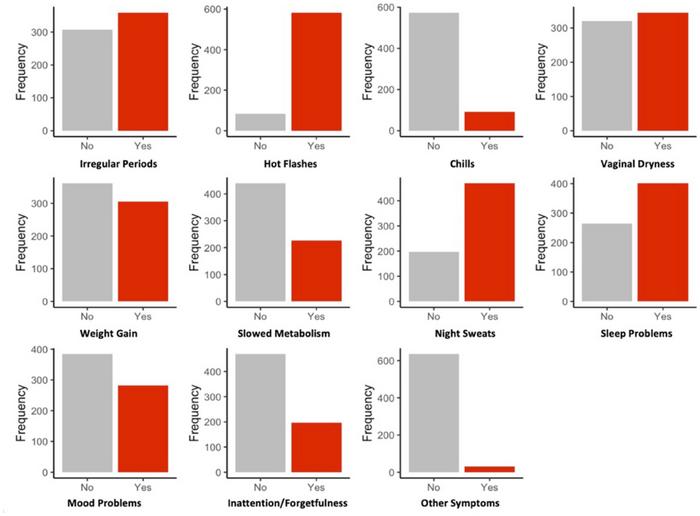
Women experiencing a greater burden of menopausal symptoms may be at a heightened risk for cognitive impairment and mild behavioral symptoms in later life, according to a recent study from the Canadian Platform for Research Online to Investigate Health, Quality of Life, Cognition, Behaviour, Function, and Caregiving in Aging (CAN-PROTECT). Published on March 5, 2025, in the open-access journal PLOS One, the research conducted by Zahinoor Ismail and colleagues from the University of Calgary explored the relationship between perimenopausal symptoms and cognitive health among 896 postmenopausal women, revealing concerning implications for women’s health.
The study’s results are particularly salient given the well-documented higher incidence of Alzheimer’s disease among women compared to men. Women are known to be three times more likely to develop this neurodegenerative condition, a phenomenon that is anticipated to intensify as the global population ages. Factors that may contribute to this increased risk include hormonal changes associated with menopause, notably the decline in estradiol levels. This loss of estrogen is suspected to play a critical role in the cognitive health of women as they navigate through midlife and beyond.
In their analysis, the researchers measured the menopausal symptom burden of participants through a comprehensive questionnaire. This assessment included a variety of symptoms such as irregular periods, hot flashes, mood disturbances, sleep issues, memory lapses, and physical changes – all typical experiences during the perimenopausal phase. Notably, the study established a clear correlation between the number of reported symptoms and higher levels of cognitive impairment, quantified by the ECog-II scores, a measure reflecting everyday cognitive function.
The findings were striking: women who endorsed a larger number of perimenopausal symptoms exhibited marked cognitive decline, indicative of potential future dementia risk. The statistical analysis yielded an impressive confidence interval, signifying a robust association, thereby underscoring the potential significance of menopausal experiences in long-term cognitive trajectories. Moreover, the study revealed patterns of mild behavioral impairment, measured by the MBI-C scale, suggesting that psychological well-being during the menopausal transition could critically influence cognitive outcomes later in life.
Another interesting aspect of the study was the exploration of hormone therapy’s role. While no significant relationship between hormone therapy and cognitive function was determined, the researchers noted that hormone therapy appeared to be associated with fewer behavioral symptoms. This revelation opens avenues for further investigation into how estrogen-based treatments might mitigate some psychological challenges faced by postmenopausal women, emphasizing the need for a more nuanced understanding of hormone replacement therapy’s benefits and risks.
The implications of the revealed link between menopausal symptom burden and cognitive decline are twofold. First, they emphasize the importance of early identification and management of menopausal symptoms to protect women’s cognitive function as they age. Second, they highlight the need for subsequent research to verify these findings within diverse populations to strengthen the generalizability of the results. Future studies should ideally incorporate a longitudinal design that could elucidate causal relationships and explore confounding factors such as age of menopause onset, the context of surgical menopause, and individual genetic predispositions.
Furthermore, the authors advocate for a broader dialogue about the experiences of women during menopause, focusing on how these experiences intersect with mental health and cognitive aging. The recognition of menopause as a significant period that can shape long-term health outcomes is a critical step in addressing women’s health issues holistically and incorporating gender-sensitive frameworks in medical research.
In conclusion, the study elucidates a vital connection between the burden of menopausal symptoms and cognitive health, lasting implications for a growing demographic of postmenopausal women. As research continues to unravel the complexities of menopause, it is essential that healthcare providers remain vigilant to the experiences of their female patients, ensuring that menopausal symptom management is part of a strategy designed to safeguard cognitive health and improve quality of life in later years.
The findings serve as a potent reminder of the interconnections between physiological changes and cognitive health, urging society to take note of the unique health challenges faced by women and promote greater awareness and understanding of their needs throughout their life stages.
With this burgeoning field of study gaining recognition, it is incumbent upon both clinical practitioners and researchers to collaboratively address the myriad of challenges posed by menopause, aiming towards innovative solutions that can enhance the overall well-being of older women globally. These insights may ultimately lead to more tailored treatments and preventive strategies that not only address immediate menopausal symptoms but also support long-term cognitive health.
Ultimately, as we garner a deeper understanding of the relationship between menopausal symptoms and cognitive aging, we can foster more informed discussions and interventions, ensuring that women’s voices are heard and their health histories respected as we move forward into a more equitable healthcare landscape.
Subject of Research: Women and cognitive function in relation to menopausal symptoms
Article Title: Menopausal symptom burden as a predictor of mid- to late-life cognitive function and mild behavioral impairment symptoms: A CAN-PROTECT study
News Publication Date: March 5, 2025
Web References: PLOS One Journal
References: Crockford JFE, et al. (2025). PLOS ONE 20(3): e0301165. DOI: 10.1371/journal.pone.0301165
Image Credits: Credit: Crockford et al., 2025, PLOS One, CC-BY 4.0
Keywords: Menopause, cognitive function, behavioral symptoms, Alzheimer’s disease, hormone therapy, women’s health, dementia risk, observational study.
Tags: aging and women’s healthAlzheimer’s disease risk factorsbehavioral symptoms in aging womenCAN-PROTECT research studycognitive health in postmenopausal womenestradiol and brain functionhormonal changes during menopausehormone therapy and cognitionmenopause symptoms and cognitive declineneuropsychiatric disorders in womenperimenopausal symptoms impactwomen’s health and aging





